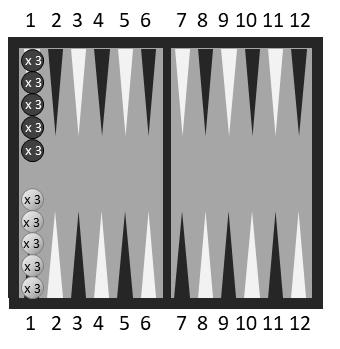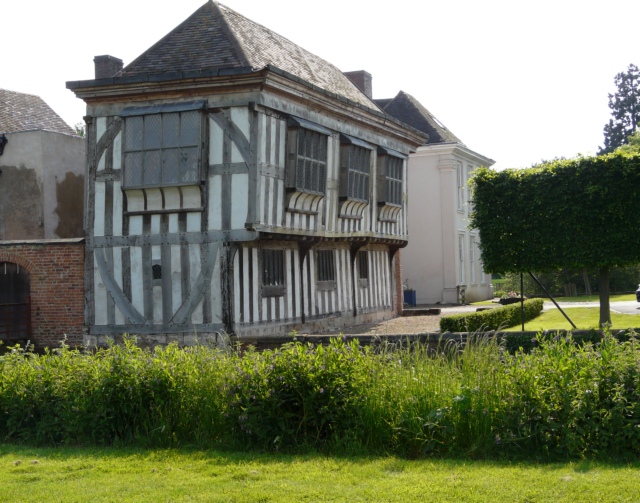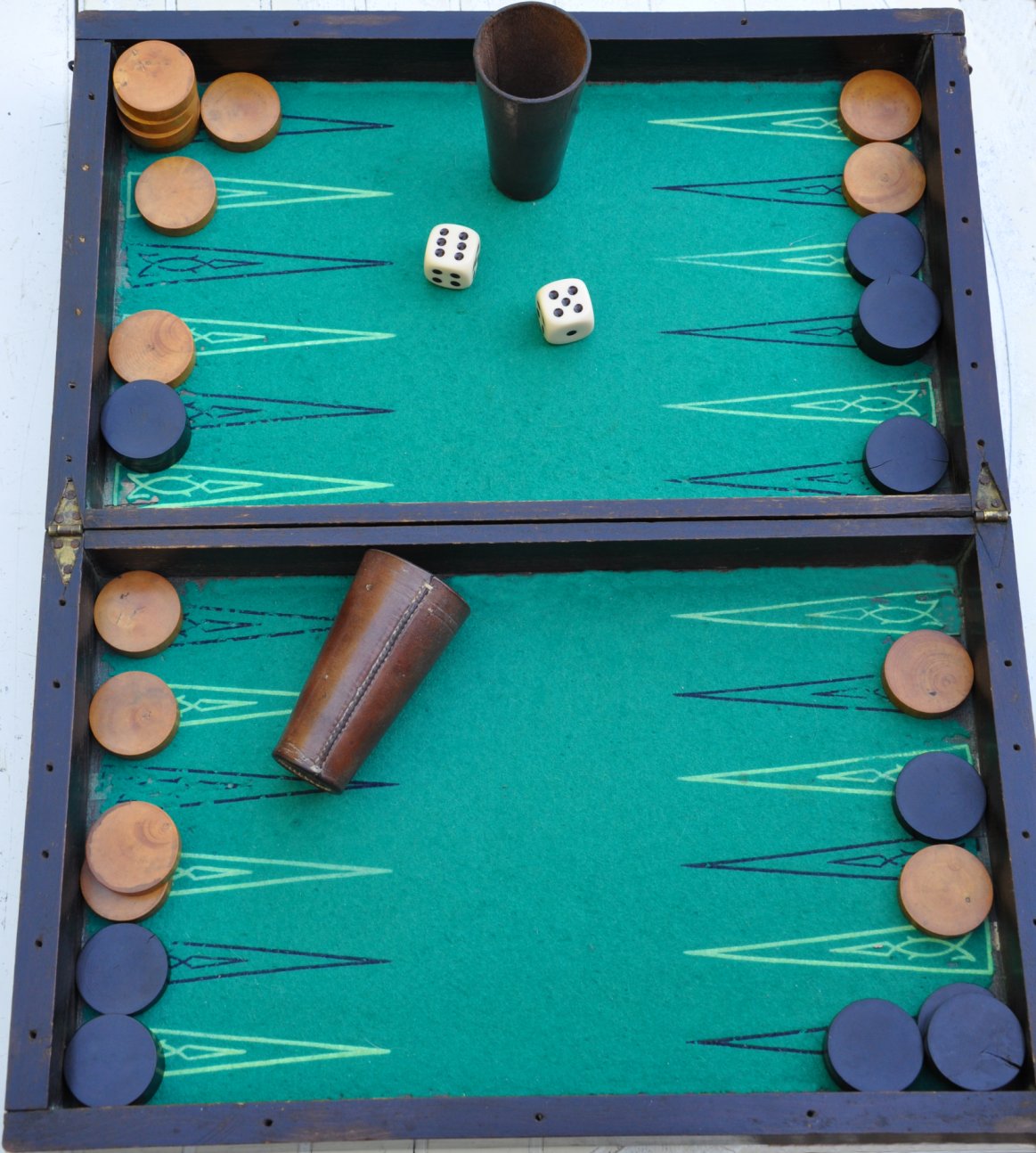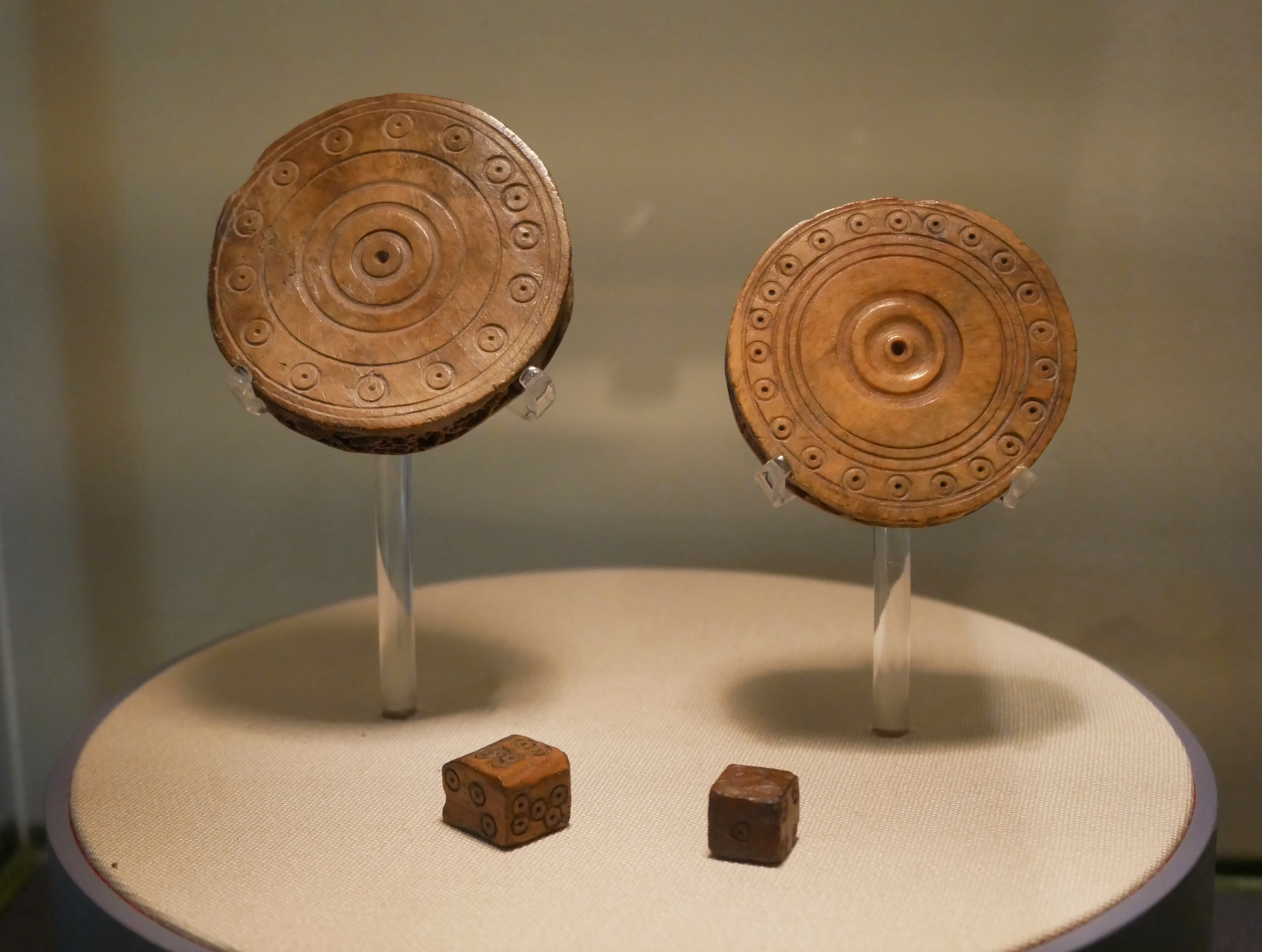|
Ticktacke
Ticktack or Tick-Tack, is an historical English tables game for two players using a board similar to that used today for Backgammon and other tables games. Like its much more elaborate French counterpart, Trictrac, it has the unusual feature that there are several different ways in which it can be won, including ''Toots'' and ''Rovers''. History Ticktack is mentioned as early as 1586 as a game played by English country gentlemen in inclement weather along with three other games of the tables family: Lurch, Irish and Doublets. The earliest and only comprehensive set of rules appeared in 1672 by Willughby.Willughby (1666–1672), pp. 116 ff. However, Cotton gives an overview in ''The Compleat Gamester'' of 1674, an account which was reprinted until 1754, after which the game faded from view, being reported in Halliwell-Phillips (1881) as archaic.Halliwell-Philipps (1881), p. 873. Name Willughby says that the name Ticktack came from the rule that if a man is touched, it must ... [...More Info...] [...Related Items...] OR: [Wikipedia] [Google] [Baidu] |
Lurch (game)
Lourche was a French board game that was played in the 16th and 17th centuries. It was played, like backgammon, on a tables board. The rules of the game have been lost, Furetière (1727) describing it simply as a "kind of trictrac game", trictrac being the name given to the board used for tables games. The game is referred to in the English expression 'left in the lurch', parallel to the French ''demeurer lourche'', referring to the hopeless losing position a player of the game could end up in. Names In English the name is variously spelt Lurch or Lurche. In French it is the ''jeu du Lourche'', ''l'Ourche'' or ''Ourche''. In German it was called ''Lorzen'', ''Lurz'', ''Lurtsch'' or ''Lurtschspiel'' History The game was listed by Rabelais in his work, ''Gargantua and Pantagruel'', in 1534. In 1586, the ''English Courtier and Country Gentleman'' says that "In fowle weather, we send for some honest neighbours, if happely wee bee without wives, alone at home (as seldome we are) and ... [...More Info...] [...Related Items...] OR: [Wikipedia] [Google] [Baidu] |
Irish (game)
Irish or the Irish Game was an Anglo-Scottish tables game for two players that was popular from the 16th to the mid-18th centuries before being superseded by its derivative, the "faster paced" backgammon. In its day, Irish was "esteemed among the best games at Tables." Its name notwithstanding, Irish was one of the most international forms of tables games, the equivalent of French ''toutes tables'', Italian ''tavole reale'' and Spanish ''todas tablas'',Forgeng, Johnson and Cram (2003), p. 269. the latter name first being used in the 1283 ''El Libro de los Juegos'', a translation of Arabic manuscripts by the Toledo School of Translators. The name may have been coined to distinguish it from Ludus Anglicorum, the English Game which was older. There is no evidence that it was particularly linked with Ireland, although it was played there too. History ''Irish gamyne'' is mentioned as early as 1507 being played by the Scottish king, James IV of Scotland, James IV, and was a game at wh ... [...More Info...] [...Related Items...] OR: [Wikipedia] [Google] [Baidu] |
The Compleat Gamester
''The Compleat Gamester'', first published in 1674, is one of the earliest known English-language games compendia. It was published anonymously, but later attributed to Charles Cotton (1630–1687). Further editions appeared in the period up to 1754 before it was eclipsed by ''Mr. Hoyle's Games'' by Edmond Hoyle (1672–1769). History In the mid-17th century, game literature in England took off. Initially these were translations of French books, for example on piquet, but later more original publications appeared. The most successful of these was ''The Compleat Gamester'', which was first published anonymously in 1674, but was attributed during the 18th century to Charles Cotton. Contents The 1674 edition included instructions on how to play "all manner of usual and most gentile games either on cards or dice," as well as "the arts and mysteries" of riding, racing, archery Archery is the sport, practice, or skill of using a Bow and arrow, bow to shooting, shoot arr ... [...More Info...] [...Related Items...] OR: [Wikipedia] [Google] [Baidu] |
Historical Tables Games
History is the systematic study of the past, focusing primarily on the human past. As an academic discipline, it analyses and interprets evidence to construct narratives about what happened and explain why it happened. Some theorists categorize history as a social science, while others see it as part of the humanities or consider it a hybrid discipline. Similar debates surround the purpose of history—for example, whether its main aim is theoretical, to uncover the truth, or practical, to learn lessons from the past. In a more general sense, the term ''history'' refers not to an academic field but to the past itself, times in the past, or to individual texts about the past. Historical research relies on Primary source, primary and secondary sources to reconstruct past events and validate interpretations. Source criticism is used to evaluate these sources, assessing their authenticity, content, and reliability. Historians strive to integrate the perspectives of several sour ... [...More Info...] [...Related Items...] OR: [Wikipedia] [Google] [Baidu] |
Willughby, Francis
Francis Willughby (sometimes spelt Willoughby, ) FRS (22 November 1635 – 3 July 1672) was an English ornithologist, ichthyologist and mathematician, and an early student of linguistics and games. He was born and raised at Middleton Hall, Warwickshire, the only son of an affluent country family. He was a student at Trinity College, Cambridge, where he was tutored by the mathematician and naturalist John Ray, who became a lifetime friend and colleague, and lived with Willughby after 1662 when Ray lost his livelihood through his refusal to sign the Act of Uniformity. Willughby was elected as a Fellow of the Royal Society in 1661, then aged 27. Willughby, Ray, and others such as John Wilkins were advocates of a new way of studying science, relying on observation and classification, rather than the received authority of Aristotle and the Bible. To this end, Willughby, Ray and their friends undertook a number of journeys to gather information and specimens, initially in England a ... [...More Info...] [...Related Items...] OR: [Wikipedia] [Google] [Baidu] |
Francis Willughby's Book Of Games
Francis may refer to: People and characters *Pope Francis, head of the Catholic Church (2013–2025) *Francis (given name), including a list of people and fictional characters *Francis (surname) * Francis, a character played by YouTuber Boogie2988 Places * Rural Municipality of Francis No. 127, Saskatchewan, Canada * Francis, Saskatchewan, Canada ** Francis (electoral district) * Francis, Nebraska, USA *Francis Township, Holt County, Nebraska, USA * Francis, Oklahoma, USA *Francis, Utah, USA Arts, entertainment, media * ''Francis'' (film), the first of a series of comedies featuring Francis the Talking Mule, voiced by Chill Wills *''Francis'', a 1983 play by Julian Mitchell * Francis (band), a Sweden-based folk band *Francis (TV series), a Indian Bengali-language animated television series Other uses *FRANCIS, a bibliographic database * ''Francis'' (1793), a colonial schooner in Australia *Francis turbine, a type of water turbine See also *Saint Francis (other) * Fra ... [...More Info...] [...Related Items...] OR: [Wikipedia] [Google] [Baidu] |
Bear Off
The following is a glossary of terms used in tables games, essentially games played on a Backgammon-type board. Terms in this glossary should not be game-specific (e.g. specific to a single game like Backgammon or Acey-deucey), but applicable to a range of tables games. A ; ace # A die roll of one. # The face of a die with one pip. (Historically, 2=''deuce'', 3=''trey'', 4=''quater'', 5=''cinc'', 6=''sice''; though these terms are now obsolete.Murray (1941), p. 59.Parlett (2018), p. 28.) ; ace point : The player's first point on the board. Also home point or one point. B ; backgammon : A game in which the loser has not only failed to bear any pieces off, but has pieces in the opponent's home table or on the bar. It is worth triple. ; bar : The central strip separating the left and right halves of the board, usually formed by the raised edges or rails of each half board. The raised partition of the board.Longacre (1980), pp. 129 ff. ; bear off : To remove ... [...More Info...] [...Related Items...] OR: [Wikipedia] [Google] [Baidu] |
Ticktack Starting Layout
Ticktack or Tick-Tack, is an historical English tables game for two players using a board similar to that used today for Backgammon and other tables games. Like its much more elaborate French counterpart, Trictrac, it has the unusual feature that there are several different ways in which it can be won, including ''Toots'' and ''Rovers''. History Ticktack is mentioned as early as 1586 as a game played by English country gentlemen in inclement weather along with three other games of the tables family: Lurch (game), Lurch, Irish (game), Irish and Doublets. The earliest and only comprehensive set of rules appeared in 1672 by Francis Willughby, Willughby.Willughby (1666–1672), pp. 116 ff. However, Cotton gives an overview in ''The Compleat Gamester'' of 1674, an account which was reprinted until 1754, after which the game faded from view, being reported in Halliwell-Phillips (1881) as archaic.Halliwell-Philipps (1881), p. 873. Name Willughby says that the name Ticktack came from ... [...More Info...] [...Related Items...] OR: [Wikipedia] [Google] [Baidu] |
Table (tables Game)
The following is a glossary of terms used in tables games, essentially games played on a Backgammon-type board. Terms in this glossary should not be game-specific (e.g. specific to a single game like Backgammon or Acey-deucey), but applicable to a range of tables games. A ; ace # A die roll of one. # The face of a die with one pip. (Historically, 2=''deuce'', 3=''trey'', 4=''quater'', 5=''cinc'', 6=''sice''; though these terms are now obsolete.Murray (1941), p. 59.Parlett (2018), p. 28.) ; ace point : The player's first point on the board. Also home point or one point. B ; backgammon : A game in which the loser has not only failed to bear any pieces off, but has pieces in the opponent's home table or on the bar. It is worth triple. ; bar : The central strip separating the left and right halves of the board, usually formed by the raised edges or rails of each half board. The raised partition of the board.Longacre (1980), pp. 129 ff. ; bear off : To remove one's me ... [...More Info...] [...Related Items...] OR: [Wikipedia] [Google] [Baidu] |
Tables Board
Tables games are a class of board game that includes backgammon and which are played on a tables board, typically with two rows of 12 vertical markings called point (tables game), points. Players roll dice to determine the movement of pieces. Tables games are among the oldest known board games, and many different varieties are played throughout the world. They are called "tables" games because the boards consist of four quadrants or "tables". The vast majority are race games, the tables board representing a linear race track with start and finish points, the aim being to be first to the finish line, but the characteristic features that distinguish tables games from other race games are that they are two-player games using a large number of pieces, usually fifteen per player. Tables games should not be confused with Casino game#Table games, table games which are casino gambling games like roulette or blackjack. Name The word "tables" is derived from the Latin ''tabula'' which pr ... [...More Info...] [...Related Items...] OR: [Wikipedia] [Google] [Baidu] |






